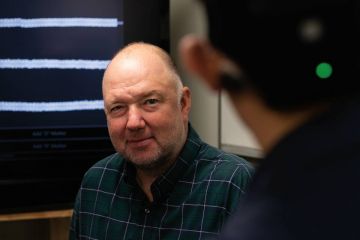Volunteers Needed For Brain-Exercise Study
Does exercise improve memory and learning in children with fetal alcohol spectrum disorder (FASD)? Dr. Brian Christie, a neuroscientist in the University of Victoria’s Division of Medical Sciences, is seeking community help to find out. He’s looking for children with FASD between the ages of six and 17 to participate in a 12-week exercise program. Participants will boost their heart rate by playing interactive video games while pedaling a stationary bike.
FASD is caused by the use of alcohol during pregnancy. Children with the disorder typically have difficulty with learning, memory, planning and paying attention. Christie and his team have previously shown that cardiovascular exercise can increase the level of a special brain protein—known as BDNF—that improves brain function. It’s now time to see if increasing BDNF levels can have similar benefits in children with FASD, says Christie, whose study team includes psychologists, kinesiologists and computer scientists. “This is a fun and interactive exercise program that uses video games,” he says. “It’s our hope it will help enhance the quality of life for these children by increasing their learning capacity.”
The physical fitness level of each volunteer will be assessed before and after the 12-week program. Anyone interested in knowing more about the study or how to register as a participant can visit www.fasdatuvic.ca or call 250-472-4244.
—30—
Media contacts
>Dr. span Christie (Medical Sciences) at 250-472-4244 or brain64@uvic.ca
Valerie Shore (UVic Communications) at 250-721-7641 or vshore@uvic.ca




